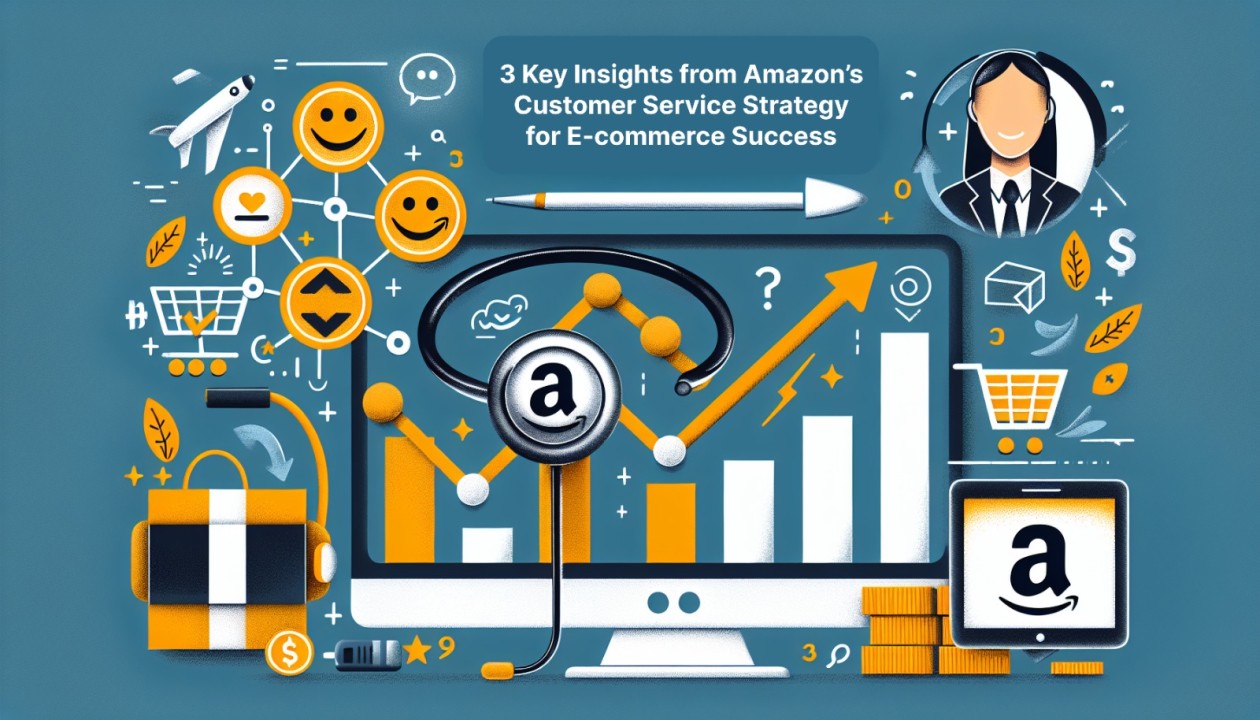The digital age has revolutionized the way people shop, work, and interact with businesses. E-commerce has become a central component of the global economy, offering unprecedented opportunities for consumers and businesses alike. At the forefront of this transformation is Amazon, a company that has leveraged innovative technology to reshape online retail, logistics, and digital services. Through its sophisticated e-commerce platforms, Amazon empowers businesses to reach a broader audience and provides consumers with seamless shopping experiences. Understanding the impact of these technologies is essential to appreciate how modern commerce is evolving.
What Is E-Commerce Technology?
E-commerce technology encompasses the tools, platforms, and processes that enable buying and selling goods and services online. This includes online marketplaces, payment gateways, digital advertising, data analytics, artificial intelligence, cloud computing, and mobile applications. The goal is to streamline transactions, enhance customer experiences, and provide businesses with actionable insights to grow efficiently.
Online marketplaces integrate various functions, such as product listing, inventory management, order processing, and customer support, into a single platform. Payment gateways allow for secure, seamless transactions, supporting multiple currencies and payment methods. Advanced technologies, including AI and machine learning, analyze consumer behavior to personalize shopping experiences, optimize pricing, and predict demand.
How Does E-Commerce Empower Businesses?
E-commerce technology opens doors for businesses of all sizes to reach a global audience. Traditionally, expanding a business required physical stores, extensive marketing, and high overhead costs. Online platforms eliminate many of these barriers, allowing businesses to sell products and services worldwide without the need for large-scale infrastructure.
One significant advantage is access to a vast customer base. Through online marketplaces, small and medium enterprises can compete alongside established brands, gaining visibility that would otherwise be unattainable. Advanced analytics tools allow businesses to understand customer preferences, track purchasing patterns, and make data-driven decisions to improve sales performance.
Furthermore, e-commerce platforms provide businesses with scalable solutions. Inventory management, automated order processing, and integrated logistics support allow companies to handle increasing demand efficiently. This not only improves operational efficiency but also enhances customer satisfaction by ensuring timely delivery and accurate order fulfillment.
What Are the Benefits for Consumers?
Consumers also experience significant advantages through e-commerce technology. Online shopping provides convenience, variety, and transparency that traditional retail often cannot match. With a few clicks, consumers can explore a wide range of products, compare prices, read reviews, and make informed purchasing decisions.
Personalization is another key benefit. AI-driven recommendations suggest products based on browsing history, preferences, and past purchases, creating a shopping experience tailored to individual needs. This saves time and increases the likelihood of finding products that meet specific requirements.
E-commerce platforms also provide flexibility in payment options, delivery methods, and return policies. Consumers can choose from various payment methods, including credit cards, digital wallets, and installment plans, while enjoying fast, reliable shipping options. Transparent return and refund policies build trust and encourage repeat purchases.
How Does Technology Improve Operational Efficiency?
Behind the scenes, technology plays a vital role in improving operational efficiency for businesses. Automation, artificial intelligence, and data analytics streamline processes such as inventory management, demand forecasting, and order fulfillment.
Warehouse automation, for example, uses robotics and AI to sort, pack, and ship products efficiently. This reduces human error, speeds up processing times, and lowers operational costs. Predictive analytics help businesses anticipate demand fluctuations, manage stock levels effectively, and reduce waste.
Cloud computing solutions enable businesses to access scalable infrastructure without significant upfront investments. This allows companies to quickly adjust to changes in demand, implement new features, and expand their digital presence without the limitations of physical infrastructure.
What Role Does Innovation Play in E-Commerce?
Innovation is at the heart of e-commerce technology. Companies continually explore new ways to enhance the shopping experience, optimize operations, and meet evolving consumer expectations. Innovations in mobile applications, voice-activated shopping, augmented reality, and machine learning are reshaping how people interact with online retail.
Mobile commerce, for instance, enables consumers to shop anytime, anywhere, using smartphones and tablets. User-friendly apps provide smooth navigation, personalized recommendations, and secure payment options. Augmented reality tools allow shoppers to visualize products in real-life settings, increasing confidence in purchase decisions and reducing returns.
Machine learning and AI algorithms analyze vast amounts of data to improve customer targeting, optimize supply chains, and predict trends. By leveraging these insights, businesses can enhance their marketing strategies, offer relevant promotions, and anticipate consumer demand accurately.
How Does E-Commerce Technology Support Small Businesses?
Small businesses benefit immensely from e-commerce platforms by gaining access to resources and capabilities that were previously only available to larger corporations. Online marketplaces provide exposure to a global audience without requiring significant investment in physical stores or advertising.
Technology also enables small businesses to operate more efficiently. Integrated inventory systems, automated order processing, and real-time tracking reduce operational complexity. Small businesses can manage their operations from anywhere, using cloud-based tools to monitor sales, track inventory, and respond to customer inquiries quickly.
Furthermore, digital marketing tools allow small businesses to target specific audiences, measure campaign effectiveness, and optimize marketing spend. Social media integration and search engine optimization enhance visibility, helping these businesses compete in highly competitive markets.
What Are the Security and Trust Measures in E-Commerce?
Trust and security are fundamental to the success of e-commerce. Consumers need assurance that their personal and financial information is protected. Advanced encryption, secure payment gateways, and fraud detection systems ensure that online transactions remain safe and reliable.
Platforms also implement verification processes for sellers, product quality checks, and customer review systems. These measures create a transparent and trustworthy environment, encouraging both businesses and consumers to engage confidently in online transactions.
Customer support technologies, such as chatbots and AI-driven assistance, further enhance trust by providing timely responses to inquiries, resolving issues efficiently, and offering guidance throughout the purchasing process.
How Do Logistics and Supply Chain Technologies Enhance E-Commerce?
Efficient logistics and supply chain management are critical for timely delivery and customer satisfaction. E-commerce technology optimizes these processes through automation, data analytics, and real-time tracking systems.
Automated warehouses, robotic sorting, and smart inventory systems ensure that products are stored, retrieved, and shipped accurately. Route optimization algorithms and predictive delivery tools improve shipping efficiency, reducing delays and minimizing transportation costs.
Real-time tracking allows consumers to monitor the status of their orders, providing transparency and peace of mind. These technologies not only enhance operational efficiency but also build trust and loyalty among consumers, creating a more reliable shopping experience.
What Is the Future of E-Commerce Technology?
The future of e-commerce technology promises even greater empowerment for businesses and consumers. Artificial intelligence, machine learning, augmented reality, virtual reality, and blockchain will continue to transform online retail.
AI-driven personalization will become more sophisticated, predicting consumer needs before they arise. Voice commerce and smart assistants will simplify shopping further, making transactions seamless and intuitive. Augmented and virtual reality will allow immersive product experiences, enabling consumers to interact with products in virtual environments before purchasing.
Blockchain technology will enhance security, transparency, and traceability in transactions, providing consumers with confidence in product authenticity and ethical sourcing. Additionally, continued advancements in logistics, including autonomous delivery systems and smart warehousing, will ensure faster, more reliable, and environmentally friendly order fulfillment.
How Do Consumers and Businesses Benefit Together?
E-commerce technology creates a mutually beneficial ecosystem for both consumers and businesses. Consumers enjoy convenience, personalization, and reliable service, while businesses gain access to larger markets, operational efficiency, and actionable insights.
The continuous innovation in e-commerce platforms ensures that shopping experiences evolve in line with consumer expectations. At the same time, businesses can adapt quickly to market trends, improve performance, and maintain competitive advantage. This synergy drives growth, enhances satisfaction, and supports long-term success for all participants in the digital marketplace.
Conclusion
Innovative e-commerce technology has transformed the way businesses operate and how consumers shop. By providing advanced tools, seamless platforms, and data-driven insights, it empowers businesses to reach broader audiences, optimize operations, and grow efficiently. Consumers, in turn, benefit from convenience, personalization, secure transactions, and enhanced experiences.






